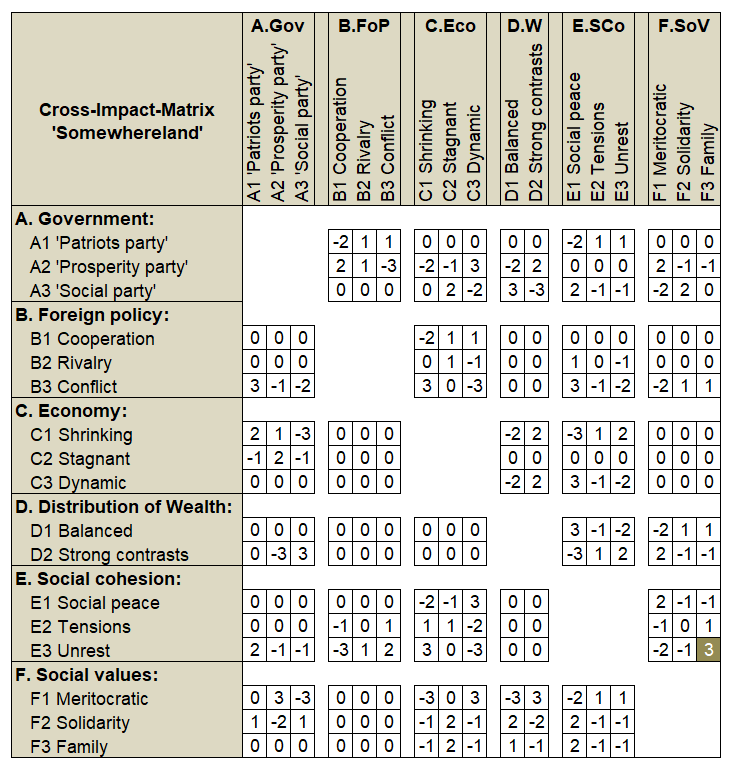| |
|
CIB Analysis - Step-by-Step
|
-3: strongly restricting influence -2: moderately restricting influence -1: weakly restricting influence 0: no influence +1: weakly promoting influence +2: moderately promoting influence +3: strongly promoting influence. |

|
| < Step 2 | Step 4 > |
| Imprint | Data privacy | Copyright |